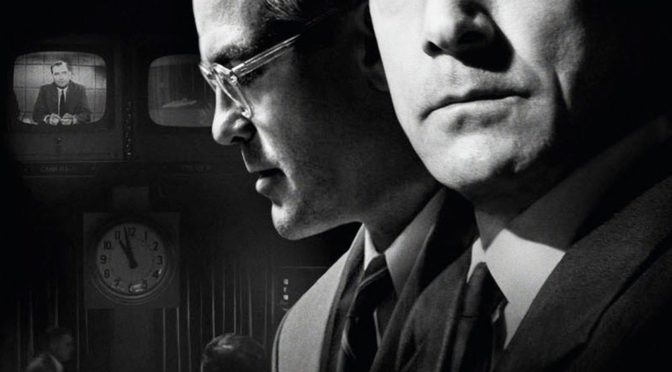Overview
George Clooney’s fact-based drama about the famous radio journalist Edward R Murrow's stand against Senator McCarthy's anti-communist witch-hunts in the early 1950s.
Good Night, and Good Luck feels almost like a documentary of real events from the 1950s. How stunning it must have been to watch TV journalist Edward Murrow and his confrontation with Senator Joseph McCarthy. It is a political film, but it doesn’t feel preachy. It is a spectacular movie about television and the role of media in the communication of the news. It should stand side by side with other classics like All the President’s Men, and Network.
Murrow, played chillingly by David Strathairn, was there at the dawn of television journalism and he cast a mold that all serious news reporters have tried to fill ever since. This film was nominated for Best Picture in 2006, and received five other nominations but criminally went home with nothing. George Clooney was Oscar nominated for his co-writing and direction, his portrayal of the CBS studio is made even more realistic by the film being entirely in black and white.
I am a skeptic by nature and I agree with the film’s premise that we must learn to question things. Television can be a tool in this cultural skepticism when real journalism is taking place, but everything from advertising to our own shrinking attention spans has turned television into just another entertainment device. As Murrow says at the end of the film,
There is a great and perhaps decisive battle to be fought against ignorance, intolerance and indifference. This weapon of television could be useful. The instrument can teach, it can illuminate. Yes, and it can even inspire. But it can do so only to the extent that humans are determined to use it to those ends. Otherwise, it is merely lights and wires in a box.
The same could be said of the silver screen and the films that are produced by Hollywood. I’m glad that movies like Good Night and Good Luck still exist to do more than entertain but educate and enlighten.
